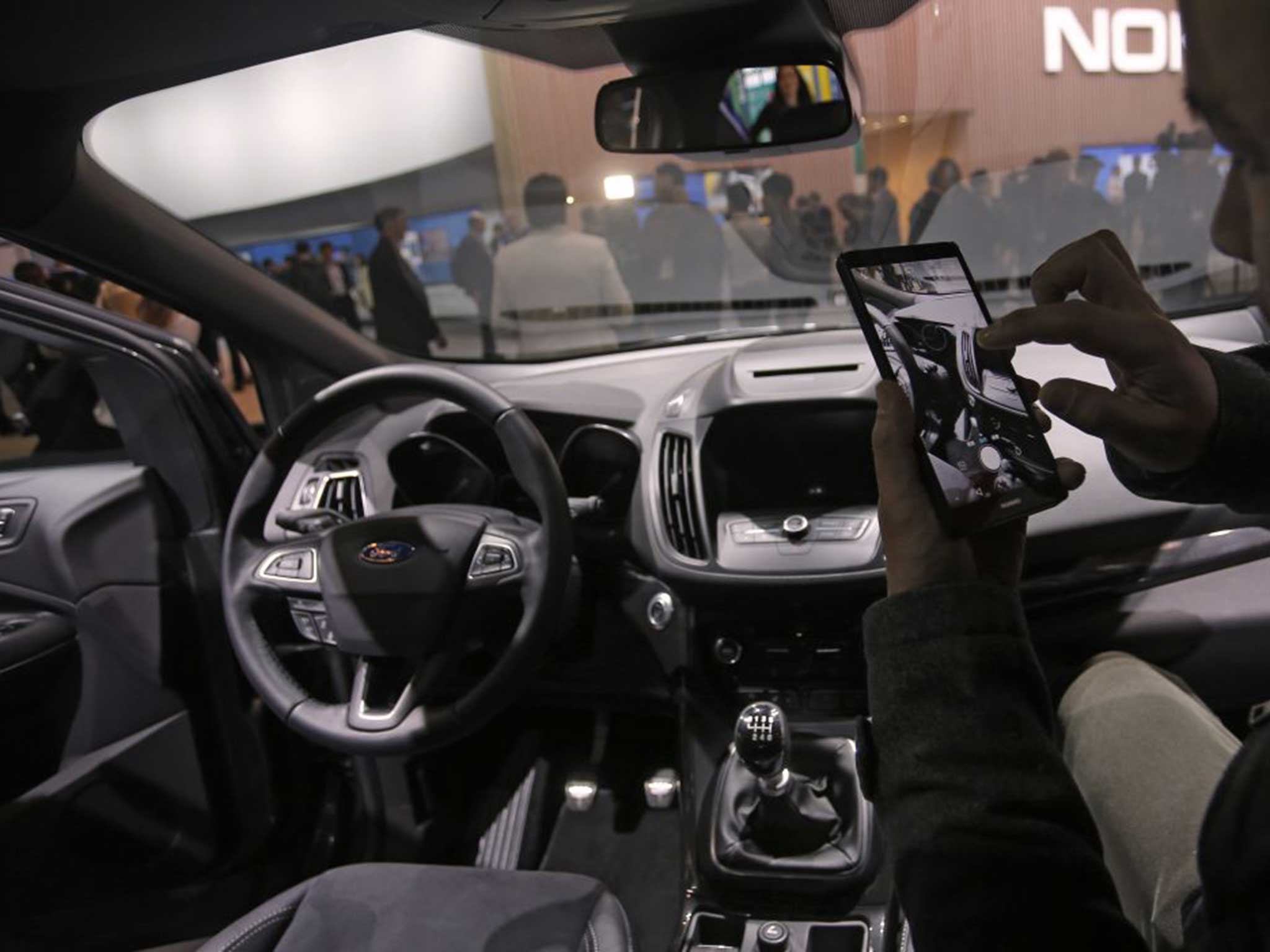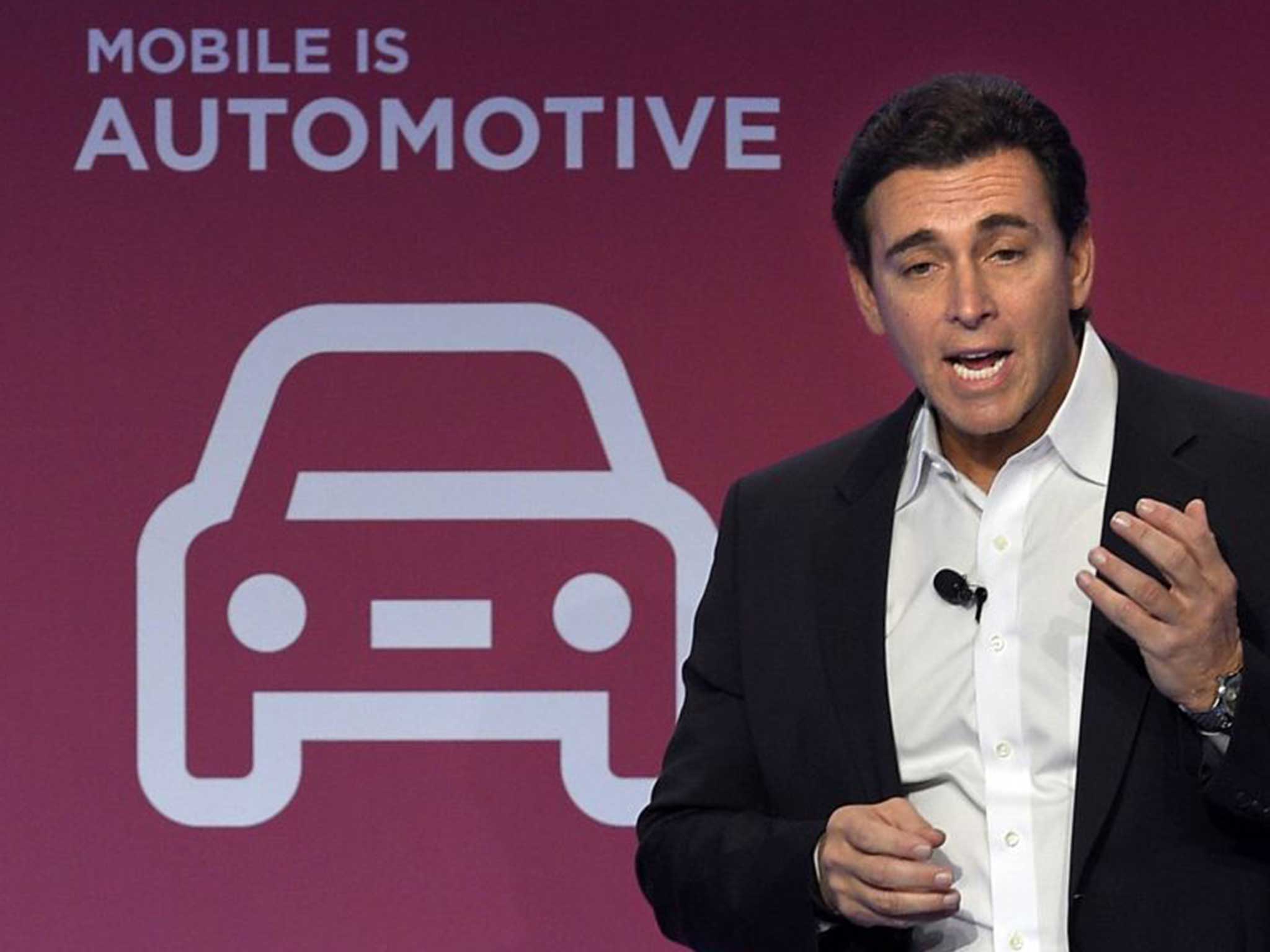Ford vacates the driver's seat as it sets out in new direction
As increased reliability and the sharing economy reduces demand for new cars, the American motor giant is planting its flag in Uber’s territory and embracing driverless technology, says Jamie Nimmo

Ask anyone at Ford what kind of business they work for and the answer you will get is not a carmaker, it is a “mobility company”.
While the manufacture and design of vehicles has changed dramatically in its 113-year history, the American giant has ostensibly always been a carmaker. Now it is much more than that.
The wheels of change are in motion at Ford, which says it is at “an inflection point” – a phrase more frequently used by start-ups on the verge of hitting the big time.
But the Detroit-based group is under no illusion that it is make or break as driverless cars become a genuine prospect and as ride-sharing companies such as Uber make it less desirable to own a car.
“We’ve been very intentional about expanding our business to become an automaker and a mobility company,” Ken Washington, Ford’s vice-president of research and advanced engineering, explained at this week’s Mobile World Congress trade show in Barcelona.

“The kind of tech for which we’ve been known for over a hundred years is the kind of tech mindset we’re bringing to our mobility journey.
“So we’ve set about putting a strategy in place to become a mobility provider. That involves connectivity, new modes of mobility, autonomous vehicles, data and analytics, and consumer experience. Increasingly, we’re making progress on all five fronts.”
That might all sound rather fuzzy, but there’s a good reason for that: Ford is still not exactly sure what the future of cars will look like.
However, it is a mark of Ford’s conviction in its new direction that it had the largest presence of any carmaker at Europe’s premier technology event, which is inundated with smartphones, tablets, wearables, and an assortment of other gizmos.
In two years since Mark Fields took charge as Ford’s chief executive, the landscape of the industry has changed completely. Carmakers are battling against falling sales, while the cars themselves are becoming cheaper but also more reliable, meaning they need to be replaced less often.
And then there is Uber. The ride-sharing start-up phenomenon, which is now more highly valued by investors than Ford, has changed the game with cheap trips and easy booking, making owning a car in the city even more optional.
But Uber’s success has brought with it plenty of negative press, including concerns about its background checks – which have in the past allowed murderers and rapists to become drivers – and bans across big cities.
Uber’s plight has played into Ford’s hands, Mr Washington explained: “It caused us to look at it as an opportunity to enter into the ride-service business, but in a very broadly defined term. Ride service for us means enabling people to ride when they don’t want to drive. That could be riding a shuttle bus, riding a taxi that you hail with an app, or riding a personally owned car that you share with another person or with family – and it could mean riding an Uber-like vehicle that is paying somebody to drive.”
Ford is trying to plant a flag in the immature parts of the ride-sharing industry, as well as the more established sections dominated by Uber. This approach makes sense when you consider that the car market is currently worth around $2.3trn (£1.6trn), compared with the $5.4trn market for all forms of transportation.
The company launched 30 “mobility” experiments last year, part of a heavy investment in sharing. These included a shuttle bus ride-sharing app in the US; a car-hire service in London called GoDrive, for one-way trips that cost just 17p per minute; and GoPark in Islington, north London, an app that reserves parking spots for users.
Even the way in which its own cars are operated is evolving. Gone are the days when you had to risk leaving the key on top of the tyre so another family member could pick the car up. Now with the FordPass app, several people, most likely in the same family, can gain access to a vehicle with their smartphone, tying whole families into owning the same make of car.
Ultimately, Ford predicts we will all be paying Spotify-style subscriptions for transport in future. In return, we will be able to jump into different Ford cars. Fancy a convertible for the weekend? Or a van to lug around furniture? It will soon be possible.
Far-fetched? Jörg Ullrich, Ford’s consumer marketing boss, doesn’t think it is. “Nobody would have believed a few years ago that we’d all be paying subscriptions for music – but that’s the way it’s gone,” he said.
Whether drivers are aware of it or not, they are being subconsciously massaged for the transition to driverless cars – the “endgame” that Mr Washington and his team at Ford believe will be “technically possible” in just four years.
“Ride service is likely to be the first application of autonomous vehicles,” he explains. “But for that application to become a reality the technology has to mature so we’re squarely focused on that technology.”
Perfecting the technology is one thing, getting regulators to approve self-driving cars is another altogether, especially with the threat posed by hackers, who could potentially take control of a car.
“Whenever you introduce a new, disruptive technology into society that has the promise of changing people’s lives, it always raises questions on a policy front and legal front, and even on an ethics front,” Mr Washington said.
Ford’s tech man believes those questions have to be addressed “as an industry”, which includes other carmakers as well as tech giants venturing into driverless cars, such as Google. “The industry has to advance the conversation with policymakers so that we can smartly inform them about what kind of policies should be in place,” he added.
“Those conversations are beginning to happen so I’m cautiously optimistic that when the technology is ready, we’ll have thoughtful policies in place.”
Join our commenting forum
Join thought-provoking conversations, follow other Independent readers and see their replies
Comments
Bookmark popover
Removed from bookmarks